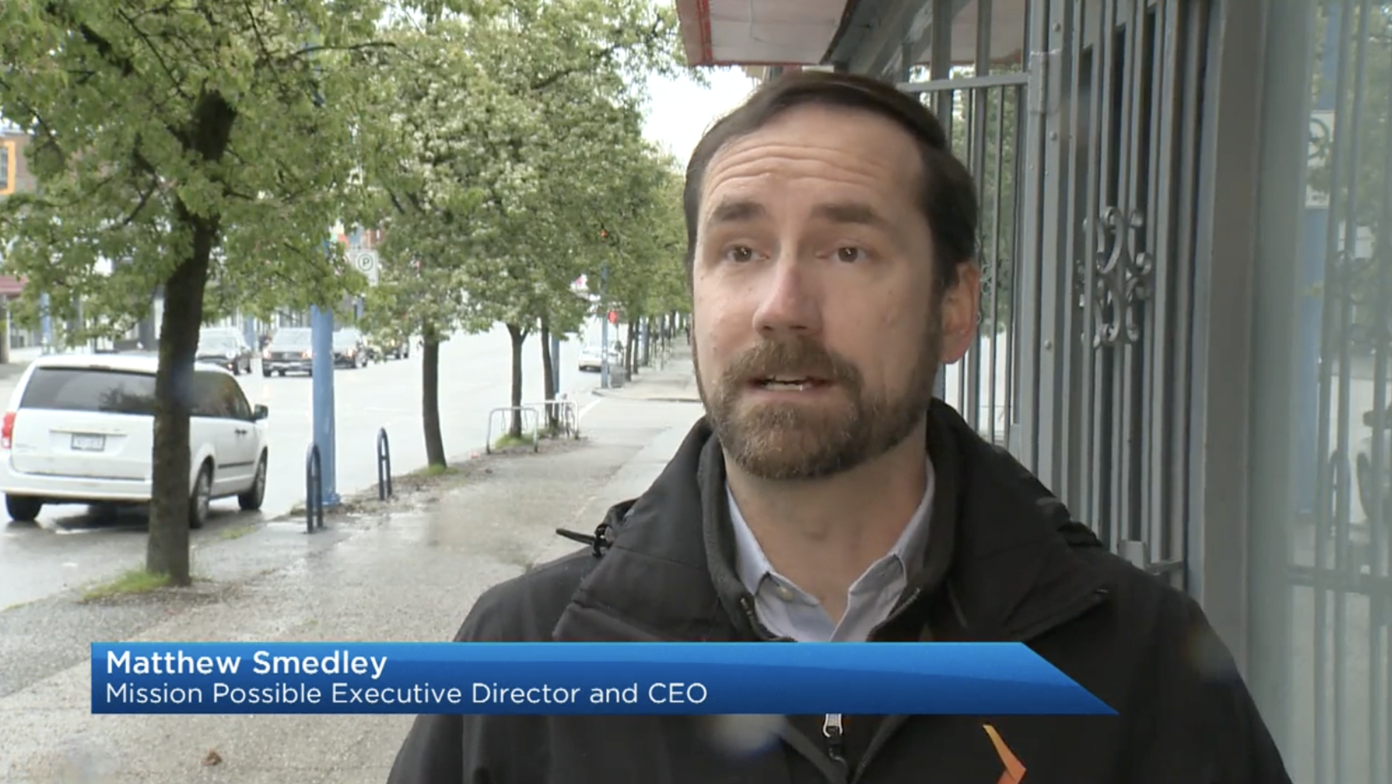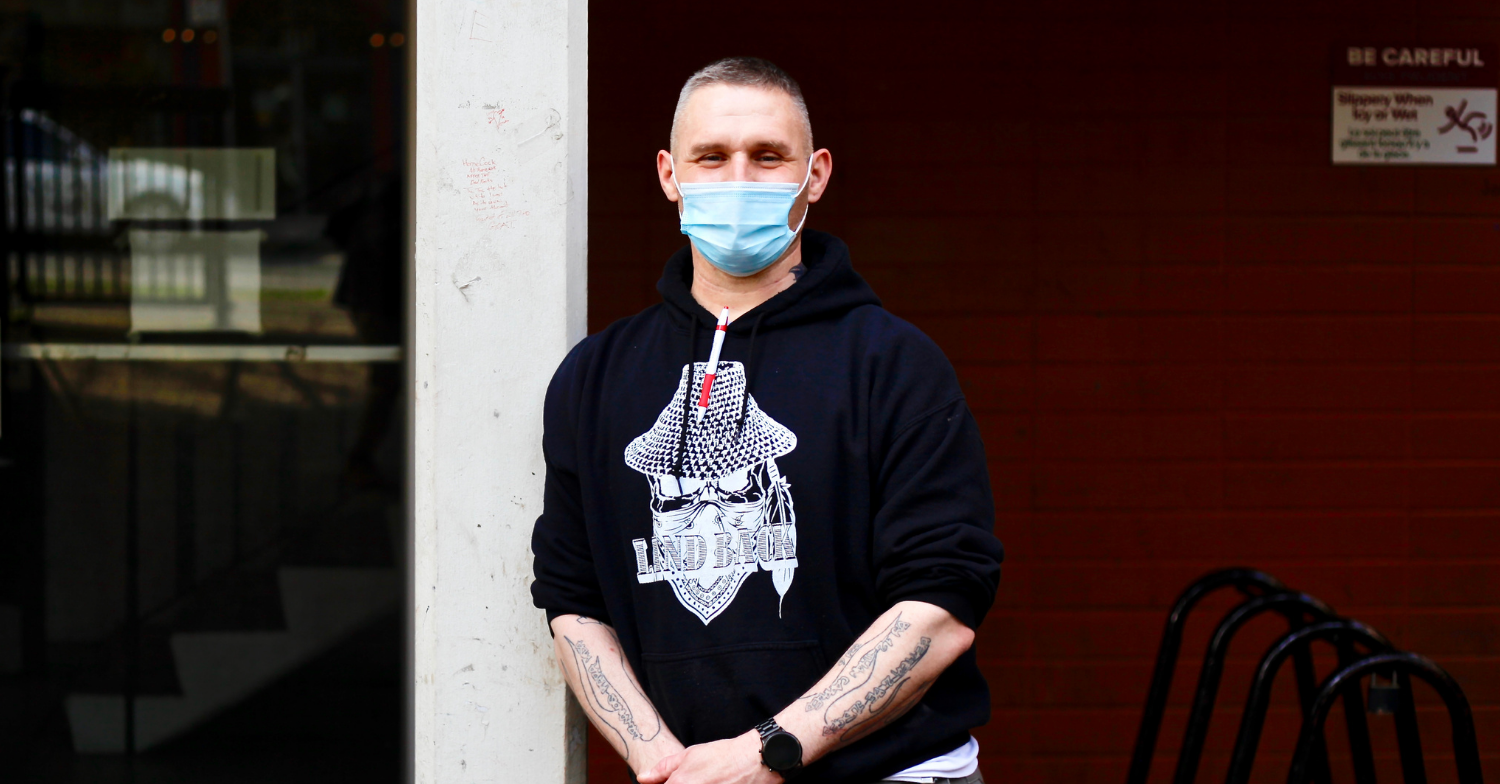Mission Possible Helps Canada Post Resume DTES Mail Delivery
MP Neighbours Coordinator Jay Hockley and MP Executive Director Matthew Smedley speak with Global News about Mission Possible's community-based...
2 min read
 Matthew Smedley
Dec 15, 2021
Matthew Smedley
Dec 15, 2021

There is much to celebrate in Canada’s soaring job numbers. New data from Statistics Canada shows that while job creation continues surging nationwide, unemployment in B.C. is holding steady at just 5.6 per cent — among the lowest rates in the country. But behind the positive numbers lies an unwelcome road block. Yes, the labour market may be motoring forward, but a labour shortage is forcing many B.C. employers to hit the brakes.
The hiring crunch can be crushing. During an economic restart where new businesses should be booming across the country, 55 per cent of entrepreneurs can’t hire staff, according to a report from the Business Development Bank of Canada this fall. Some businesses are even delaying expansions or outright cancelling orders. It will all inevitably lead to even more pandemic headaches this Christmas shopping season for customers and business owners alike — longer wait times, bigger lines, fewer workers, higher prices, and more frustration.
But what if there was a solution? What if there was a pool of thousands of untapped workers who could contribute hundreds of thousands of hours of work per year? Our research shows there is — and that these workers can save employers money, increase retention, and elevate staff morale. I’m talking about tapping into talent that is traditionally excluded from the workforce: British Columbians with diverse abilities.
What are “diverse abilities”? The term describes Canadians who are too often trapped outside traditional employment: people living with physical disabilities, neurodiversity like autism, mental health challenges, or experience with homelessness and addiction. Sometimes barriers to work are invisible, sometimes they’re not. But the term is used to emphasize that everyone’s abilities are varied, and all have value. While most would agree that all should be empowered to work, hiring practices continue to keep many from the labour market and many employers don’t make concerted efforts to tap into this talent pool. Sometimes this is because of stigma and discrimination, but mostly it’s because employers simply don’t know better: they’re following archaic hiring processes that ensure they miss out on the benefits of diverse hiring, and simply don’t know what or how to change this. Whatever the case, shutting talented people out of the labour market has massive consequences, as more than 1 in 5 Canadians have diverse abilities or barriers to work.
It’s a challenge that Mission Possible — the organization I lead — has been tackling for years. As the pandemic raged, we soft-launched a first-of-its-kind business guidebook called Untapped Talent , along with sixteen other partner organizations, providing a step-by-step guide on how to design jobs that can be filled by talented staff with diverse abilities. The research we compiled for the guidebook is compelling; while it was collected pre-pandemic, the data is more relevant now than ever:
Businesses with inclusive hiring practices generate 40 per cent more revenue than those that do not, are twice as likely to meet or exceed financial goals, and six times more likely to respond effectively to market changes (like a pandemic).
Companies with inclusive practices are also more likely to attract business from the approximately 20 per cent of those who live with some kind of disability or barrier, who represent $55 billion in buying power.
Simply put, inclusive hiring is a win-win-win: for the employee, company and customer. And our guidebook challenges the assumption that doing so is too complicated. The most basic takeaways include everything from interview adaptation to flexible shift times to graduated entry. It can be simple, and effective.
But there is one more compelling reason to hire inclusively: tapping into this talent pool will transform lives. Every day, I see people with diverse abilities stride into work with a beaming smile after years of being shut out, just like my friend Steve, who struggled to find employment after experience with homelessness and PTSD. He and others are ready and willing to tackle the labour shortage — and B.C. needs them.
While adopting the suggestions in our business guidebook won’t solve the labour crunch completely, inclusive hiring will ease pressure and prepare employers for a post-pandemic world. It’s time for B.C. employers to rise to the occasion en masse and make this a permanent practice on our road to pandemic recovery.
This op-ed was published in The Province and can be found here.

MP Neighbours Coordinator Jay Hockley and MP Executive Director Matthew Smedley speak with Global News about Mission Possible's community-based...

2 min read
A Vancouver employment agency is offering a solution to quell a COVID-fuelled job crunch that’s devastating B.C. restaurants, stores and businesses.

Over the past few months, Mission Possible has seen a surge in demand for its life-changing programs. Despite BC experiencing a significant labour...